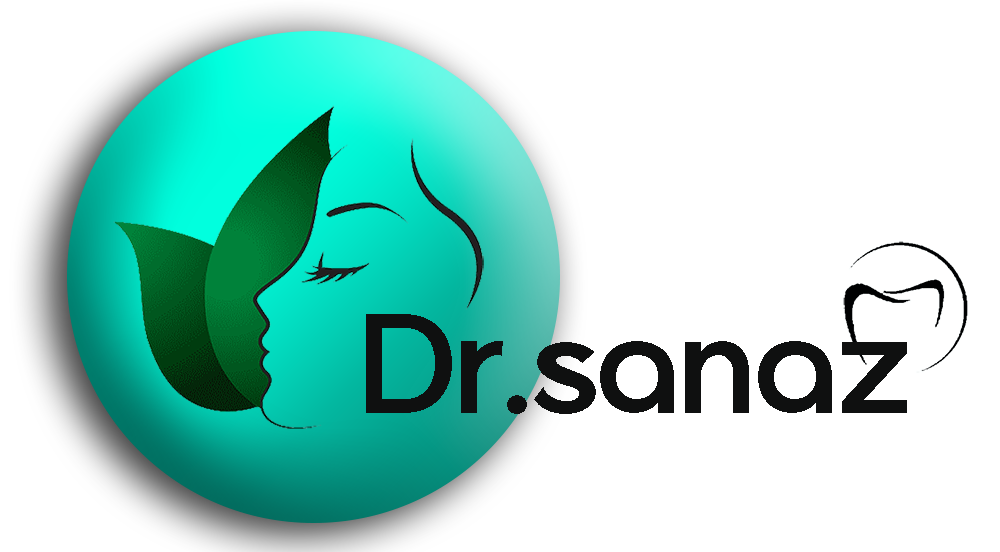

How To Prevent Pulmonary Hypertension Naturally?
Table of Contents
Pulmonary hypertension is one of the types of high blood pressure; it occurs specifically in the lung arteries and can affect people of different ages. Knowing this disease and the factors affecting its occurrence and progress can help take timely measures in order to prevent it. The first symptom of this disease is shortness of breath during daily activities.
Pulmonary hypertension can be the cause of other diseases, especially heart diseases. Therefore, timely diagnosis and prevention of this disease will help you to enjoy a better quality of life. Due to the importance of this topic, In this article of Drhealthandbeauty, we will continue to introduce the causes, complications, and treatment of pulmonary hypertension.

What is pulmonary hypertension?
it is one of the cardiovascular diseases and one of the rare types of lung disease caused by high blood pressure in the pulmonary arteries. After entering the heart, the blood enters the lungs through these arteries, is filled with oxygen, and then returns to the heart.
Normally, blood flows easily through these vessels in your lungs. However, in people with this type of pulmonary hypertension, the walls of the pulmonary arteries become thickened and stiff. They cannot expand well enough to allow blood to flow through them. This makes blood flow much more complex and causes the blood pressure in the lungs to rise, forcing the right side of your heart to work harder, possibly leading to heart failure. This disease is a relatively rare condition affecting people of any age but is more common in people with heart disease or other lung problems.disease
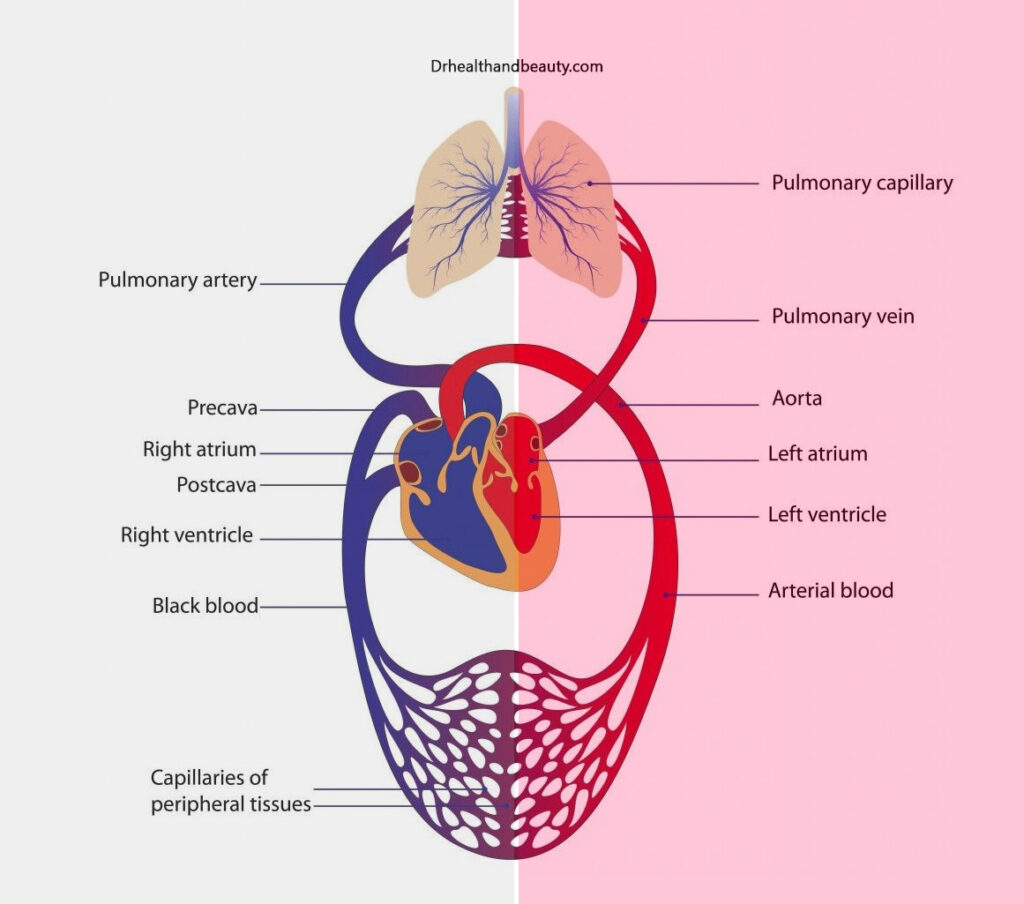
What is normal lung pressure?
Pulmonary blood pressure is usually much lower than systemic blood pressure. In the normal state, the average pressure of the pulmonary artery is 8-20 mm Hg. If the pressure in the pulmonary artery is more significant than 25 mm Hg at rest or 30 mm Hg during physical activity, it is abnormally high and is called pulmonary hypertension.
What are the causes of pulmonary hypertension?
Several factors cause that. Sometimes there is no reason to create it; In this case, this disease is called idiopathic pulmonary hypertension. Genetics may play a role in developing this type of blood pressure in some people. Some conditions that can cause this problem are as follows:
- Congestive heart failure
- Blood clots in the lungs
- HIV
- Drug use (such as cocaine or methamphetamine)
- Having liver diseases (such as liver cirrhosis)
- Lupus, scleroderma, rheumatoid arthritis, and other autoimmune diseases
- Heart defects from birth
- Lung diseases such as emphysema, chronic bronchitis, or pulmonary fibrosis
- sleep apnea
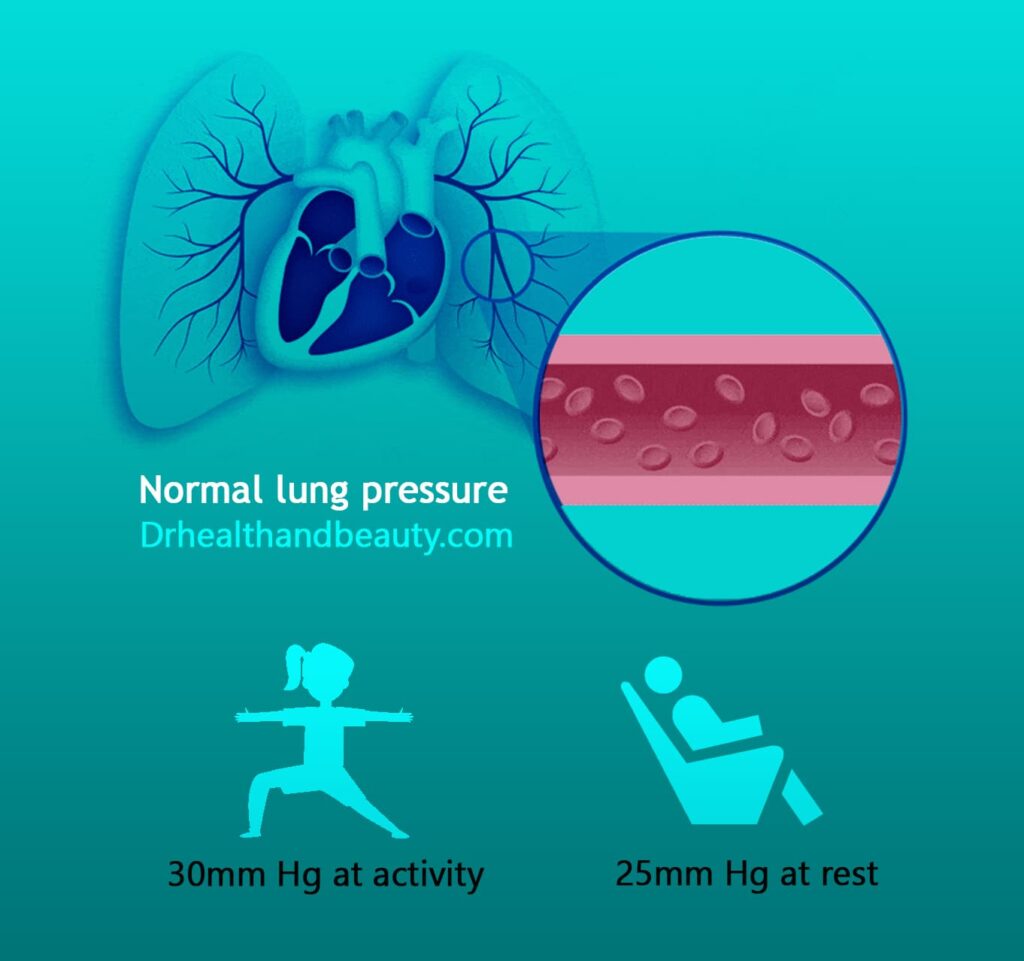
Risk factors for pulmonary hypertension
The occurrence of PAH in people can be seen at any age. However, some factors increase the risk of developing it:
- Family history: If one or more of your family members have PAH or pulmonary hypertension, you are more likely to develop it.
- Obesity and Obstructive Sleep Apnea: Obesity alone is not a risk factor. However, if obesity is combined with obstructive sleep apnea (meaning that oxygen levels decrease during sleep), mild pulmonary hypertension may occur.
- Gender: this disease is more than two and a half times more common in women than men. Women of reproductive age are more susceptible to this disease.
- Pregnancy: Pregnancy is another risk factor for this disease. Women who get pregnant despite this problem are at a much higher risk of death.
- Living at high altitudes: Years of living at high altitudes can predispose you to PAH.
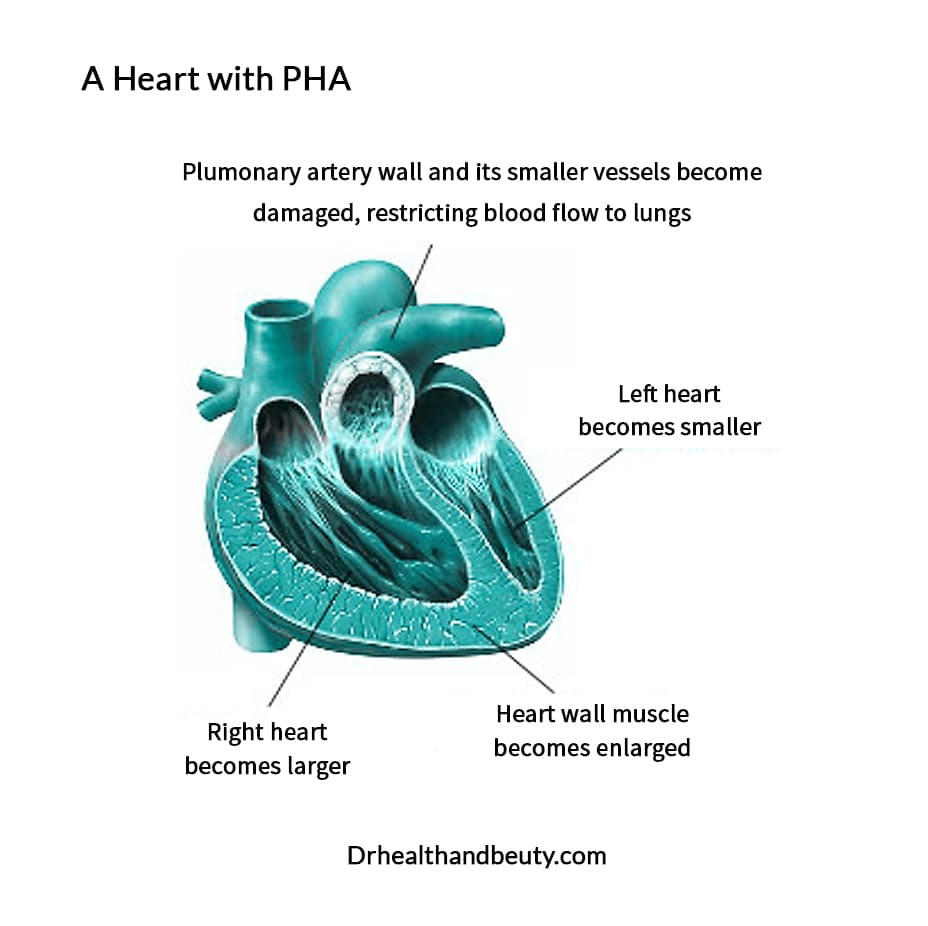
Eisenmenger syndrome and pulmonary hypertension
Eisenmenger syndrome is one of the causes of this disease. This syndrome is a long-term complication of an unrepaired heart problem at birth (congenital heart defect). In Eisenmenger syndrome, there is irregular blood flow in the heart and lungs. This causes the blood vessels in the lungs to become stiff and narrow, resulting in increased blood pressure in the pulmonary arteries. Eisenmenger syndrome permanently damages the blood vessels in the lungs. Early diagnosis and repair of congenital heart defects usually prevent this syndrome.
Pulmonary hypertension treatment
There are various treatment methods to improve and prevention of this illness that the doctor suggests to you based on the causes and severity of the disease.
Standard treatment methods include:
Drug treatment: Drug treatments for this disease include anticoagulants and diuretics. It is also possible to be offered a medicine to dilate blood vessels. The important thing is that if another disease causes it, the underlying disease must be treated first so that drug treatment can be effective and prevents it from becoming acute.
- Anticoagulants: These drugs are prescribed to prevent blood clotting. Warfarin is one of these drugs.
- Diuretics: Treatment with diuretics involves removing excess fluid from the body caused by heart failure.
- Oxygen therapy: This type of therapy involves inhaling air with a higher oxygen concentration than usual.
- Digoxin: Digoxin is another drug that can improve your symptoms by strengthening the heart muscle contractions and slowing the heart rate.
Various other treatments to improve as well as prevent pulmonary blood pressure are used based on the doctor’s opinion.
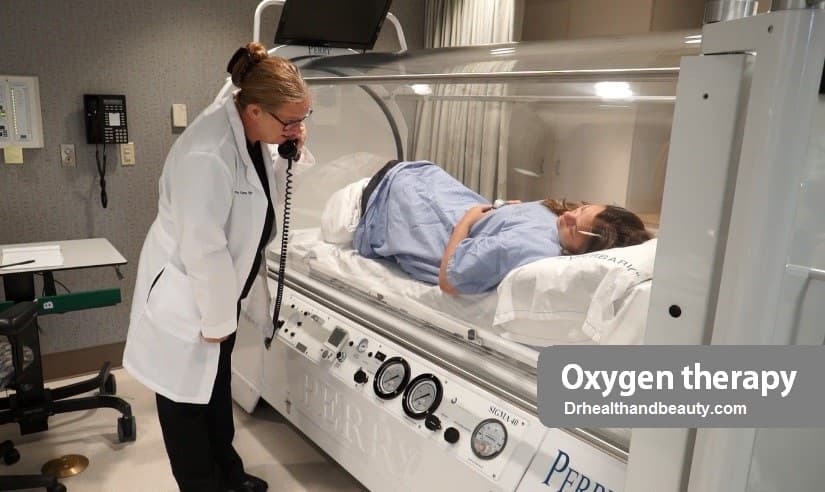
Lifestyle changes and home treatment
Changing some everyday daily habits can help patients in the process of preventing the progression of pulmonary hypertension. Some of these habits are as follows:
- Quit Smoking
- healthy diet
- Prevent weight gain
- Doing physical activities
- Avoid anxiety and stress.
Although medical treatment cannot cure that, it can reduce its symptoms. Lifestyle changes can also help improve your condition. Consider the following points:
Get enough rest. Rest can reduce fatigue caused by pulmonary hypertension.
Related: “Diet And Exercise Plan For Obese Men“

- Be as active as possible. Even the mildest form of activity may be too strenuous for some people with this disease. For others, moderate exercise, such as walking, may be helpful, especially when administering oxygen therapy. However, first, talk to your doctor about specific exercise restrictions.
These patients are usually advised not to lift heavy weights. Your doctor can help you set up an appropriate exercise program.
- Do not smoke. If you smoke, the most important thing you can do for your heart and lungs to prevent this disease is to quit. If you cannot quit smoking alone, ask your doctor to prescribe a treatment plan to help you quit. Also, do not be exposed to other people’s cigarette smoke if possible.
- Avoid taking birth control pills. Birth control pills can increase the risk of blood clots. Talk to your doctor about birth control alternatives. If you become pregnant, you should consult your doctor; Because pulmonary hypertension can cause severe complications for the mother and baby.

- Do not live or travel at high altitudes. High altitude can make the symptoms of pulmonary hypertension more severe. If you live at 2438 meters or higher, your doctor may recommend you go to a lower altitude.
- Avoid situations that can lower blood pressure too much. These conditions include sitting in a hot tub or sauna or taking a warm bath or shower. These activities lower your blood pressure and can cause fainting or even death. Also, avoid activities that cause prolonged strain, such as lifting heavy objects or weights.
- Eat healthy food and control your weight. Aim for a healthy diet of whole grains, fruits and vegetables, lean meats, and low-fat dairy products. Avoid saturated fat, trans fat, and cholesterol to prevent this illness. Most likely, your doctor will recommend limiting the amount of salt in your diet. The goal is to maintain a healthy weight.

- Ask your doctor about medications. Take all your medications as prescribed. Ask your doctor before taking other medicines; some can interfere with pulmonary hypertension treatments or worsen your symptoms.
- Have regular medical checkups. Your doctor may recommend regular follow-up appointments. Tell your doctor if you have any questions about your condition, the medications you are taking, or the symptoms or side effects of your medications. If pulmonary hypertension affects your quality of life, talk to your doctor about options that can help. Your doctor may work with another specialist to start and control any medication for pulmonary hypertension.
- Get the recommended vaccines. The doctor may recommend getting the flu and pneumonia vaccines; Because these diseases can cause severe problems for people with pulmonary hypertension.

Recommendations for people with pulmonary hypertension
In 2022, the American College of Cardiologists published updated guidelines for treating and preventing pulmonary hypertension. Among other recommendations, these guidelines recommend that:
People at risk of developing pulmonary hypertension and those with stage 1 pulmonary hypertension should be monitored for symptoms that may require treatment.
People with pulmonary hypertension should be evaluated in a medical center specializing in the diagnosis of pulmonary hypertension before starting treatment.
People with pulmonary hypertension should be treated in the context of other related diseases they have.
People with pulmonary hypertension should be vaccinated against influenza and pneumococcal pneumonia.
People with pulmonary hypertension should avoid getting pregnant. If they become pregnant, they should use a medical team that includes specialists with expertise in pulmonary hypertension.
People with pulmonary hypertension should avoid unnecessary surgeries. If surgery is required, they should use a medical team that includes specialists in pulmonary hypertension.
People with pulmonary hypertension should avoid exposure to high altitudes, including air travel. If they must be exposed to altitude, they should use supplemental oxygen if necessary.
These guidelines provide a general plan for how to care for people with pulmonary hypertension. Your treatment depends on your medical history and the symptoms you have.

Does pulmonary hypertension get better?
This condition has no cure, but treating it will reduce symptoms and help you manage it. This condition usually worsens over time, but if left untreated, it can lead to heart failure, which can be fatal, so starting treatment as soon as possible is essential.
Conclusion
Pulmonary arterial hypertension (PAH) can also be called primary pulmonary hypertension or pulmonary hypertension. Pulmonary hypertension occurs due to a decrease in the diameter of the pulmonary arteries. This narrowing may result from stiffness, stiffness, or thickening of the artery wall. The result is an increase in the amount of pressure required to pump blood through these narrow blood vessels. Over time, lesions are created inside these blood vessels, which causes more inhibition of blood flow.
Share in :
Explore more


Sitting A Long Time And Being Overweight- Drhealthandbeauty

